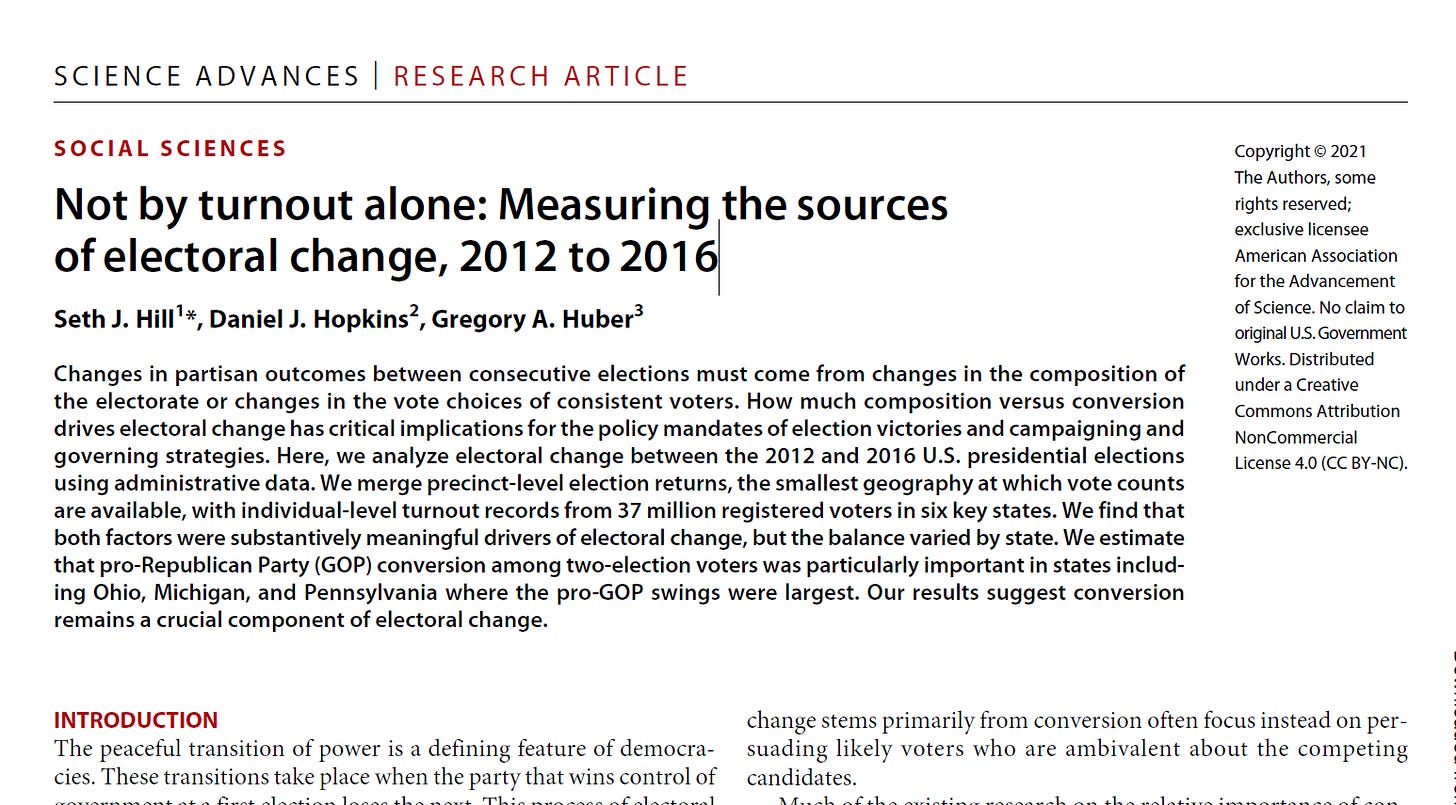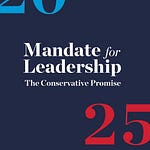When UC-San Diego political science Associate Professor Seth Hill and his co-authors dropped their latest article in the journal Science Advances, the title immediately caught my eye.
That title was “Not by turnout alone: Measuring the sources of electoral change, 2012 to 2016.” Now, having spent the better part of 2 years arguing with people about the role of turnout on electoral outcomes, my immediate thought was, “why are they burying the lead here?”
That’s because from my perspective, the novel finding is turnout does, in fact impact election outcomes. That a small portion of Independents, largely the 5%-10% of the electorate we call “pure” Independents switch from one party’s candidates to the other party’s candidates, often cycle-to-cycle, is what I consider the status quo.
But demonstrating turnout rates of various demographic groups within each party’s coalition (what the authors call “composition” explains at least a portion of the variance in party electoral performance cycle-to-cycle? Let’s just say that before that became the new conventional wisdom, it helped make me a pariah on Election Twitter after I waded into an ongoing “this not that” debate I was previously blissfully unaware of.
Its not just that the authors of this analysis deploy a really artful research design to tease out “conversion” versus “composition” effects on vote outcomes in the 2012 and 2016 cycles. That alone makes this research some of the most consequential political behavior work to be released in the last few years, at least in my biased opinion.
What really makes this analysis interesting is that the authors demonstrate party asymmetry in “conversion” versus “composition” impact. Republican vote share is more influenced by “conversion,” while Democratic vote share is more heavily influenced by “composition.”
But wait, that’s not all! The authors also discover that a state’s status as a “realigning” versus “dealigning” state also matters. In states moving towards competition for Democrats such as Georgia, the composition effect is more powerful. But in states moving away from competition, like in the Midwest, conversion is more powerful.
And that’s with just 2012 and 2016 data before turnout really juiced! This led me to ask Seth Hill, the guest on this episode’s pod about what he expects the 2020 data to look like. And a whole lot more interesting questions that you definitely don’t want to miss!
Rachel
















Share this post